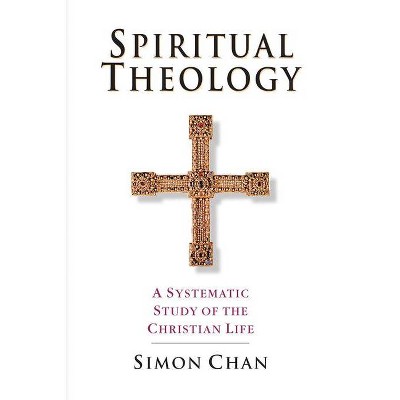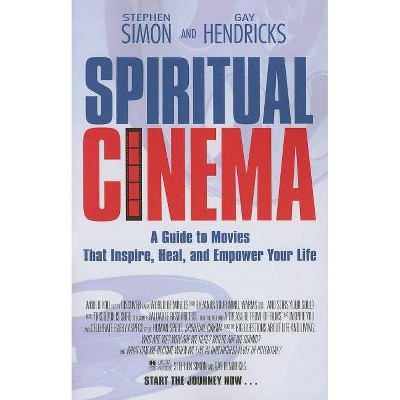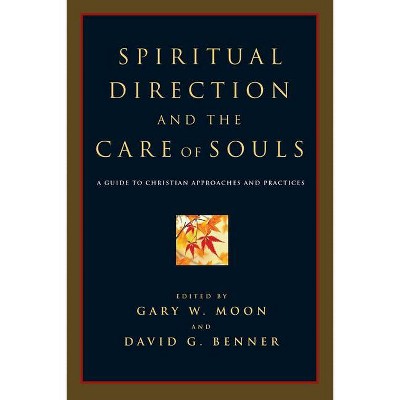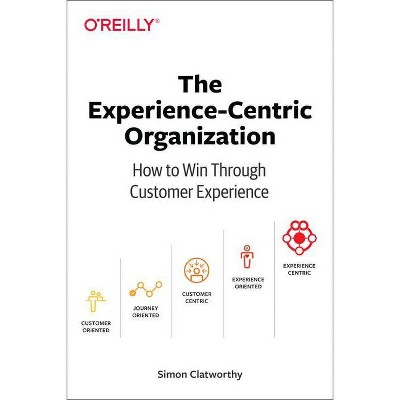Charting Spiritual Care - by Simon Peng-Keller & David Neuhold (Paperback)
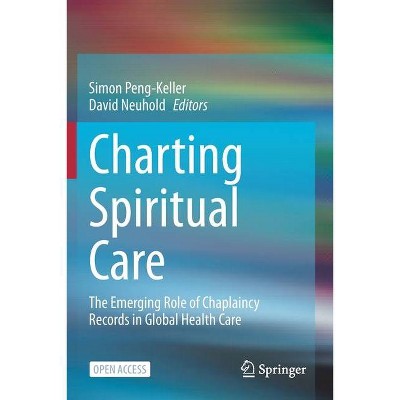
Similar Products
Products of same category from the store
AllProduct info
<p/><br></br><p><b> Book Synopsis </b></p></br></br><b>Simon Peng-Keller/David Neuhold </b><b>Recording spiritual care in electronic medical records. Overview on an ongoing development</b>Abstract: The introductory contribution begins with a historically oriented sketch. By referring to ancient and early modern practices, the relationship between spiritual (self-)care and various forms of<br>documentation is broadened. The focus is then on the documentation efforts of clinical pastoral care in the 20th century. The recording of clinical pastoral care is by no means new. The efforts of thephysician Richard Cabot and the theologian Russel L. Dicks in the 1930s show this impressively. In afurther step, more recent developments, which were important in the run-up to the electronic medical record (EMR) that produced it, are pursued. An exemplary view, namely of Kenya, expands what is depicted into another context beyond the western realm. Finally, the chapter gives an overview of the state of research and literature on the topic and some of the questions discussed therein, such as the pastoral mystery and the crucial matter of confidentiality. Possible unintended consequences of the emerging practice also are considered. Thus, the discussion is complex, multifaceted, and changing.<br>Keywords: Documentation, history, (self-)care, EMR, pastoral mystery, confidentiality, unintended side effects. <p/><b>I. Basic considerations</b><br><b>Eckhard Frick </b><b>Psychiatric-psychotherapeutic perspective</b>Abstract: Proactively addressing spiritual and religious (s/r) issues has a strong intervention effect on patients that is generally more important than the detailed content of spiritual screenings and assessments. When asked about s/r needs or problems, patients may feel bothered, surprised, annoyed, or, conversely, satisfied, supported, acknowledged in their coping efforts. Consequently, documentation should first of all reflect whether and how the patient reacts towards the clinician's s/r intervention and whether and how he wants this interaction to be shared in the healthcare team. There is growing evidence that patients want that the carers to take into account the spiritual dimension of health care. Health professionals must, however, respect individual and general boundaries (non-compulsive, non-proselytizing, non-neglecting approach). In psychiatry and psychotherapy, patients' spirituality is less pathologized than in former times and more and more accepted as a universal dimension to human experience, transcending individual religions. In mental health and in other medical fields, s/r may be part of the problem or part of the solution (K. Pargament) or both. Consequently, spiritual charting should not only differentiate pathological / negative and resilient / positive coping but also comprise the patient's s/r health-care preferences and goals as well as the role he or she attributes to the health professional. All in all, a hermeneutical (understanding) approach is required both when communicating with the patient and when putting it into writing for the healthcare team, i.e., translating the patient's spirituality and sharing it with different team members respecting their own s/r and professional belongings as well as their experiences and competencies in this field.<br>Key words: Spirituality, psychotherapy, team, patient<br><b>Guy Jobin </b><b>Ethical perspective</b>Abstract: The introduction of EHRs into clinical practice appears to be irreversible. Where EHRs are used, chaplains have cooperated willingly with this way of reporting and sharing information with other members of the care team. They must, as a result, adapt their own note-taking practices to ensure effective, relevant, and meaningful communication as part of the joint deci<p/><br></br><p><b> From the Back Cover </b></p></br></br><p>This open access volume is the first academic book on the controversial issue of including spiritual care in integrated electronic medical records (EMR). Based on an international study group comprising researchers from Europe (The Netherlands, Belgium and Switzerland), the United States, Canada, and Australia, this edited collection provides an overview of different charting practices and experiences in various countries and healthcare contexts. Encompassing case studies and analyses of theological, ethical, legal, healthcare policy, and practical issues, the volume is a groundbreaking reference for future discussion, research, and strategic planning for inter- or multi-faith healthcare chaplains and other spiritual care providers involved in the new field of documenting spiritual care in EMR.</p><p>Topics explored among the chapters include: </p><p></p><ul><li>Spiritual Care Charting/Documenting/Recording/Assessment</li><li>Charting Spiritual Care: Psychiatric and Psychotherapeutic Aspects </li><li>Palliative Chaplain Spiritual Assessment Progress Notes </li><li>Charting Spiritual Care: Ethical Perspectives </li><li>Charting Spiritual Care in Digital Health: Analyses and Perspectives</li></ul><p></p><p></p><p><i>Charting Spiritual Care: The Emerging Role of Chaplaincy Records in Global Health Care</i> is an essential resource for researchers in interprofessional spiritual care and healthcare chaplaincy, healthcare chaplains and other spiritual caregivers (nurses, physicians, psychologists, etc.), practical theologians and health ethicists, and church and denominational representatives.</p><br><p/><br></br><p><b> About the Author </b></p></br></br><p><b>Prof. Dr. Simon Peng-Keller</b> is professor of Spiritual Care at the University of Zürich in Switzerland. He also works as healthcare chaplain at the palliative care unit of the University Hospital Zurich. His current research areas of interest include interprofessional spiritual care and healthcare chaplaincy, visionary experiences near death, spiritual needs in palliative care, and theology of spirituality. </p> <p><b>David Neuhold, PD Dr., Mag. Theol., </b> is postdoc research associate at the professorship of Spiritual Care on the Faculty of Theology at the University of Zürich in Switzerland. Dr. Neuhold also is an editor of the <i>Swiss Journal for Religious and Cultural History</i> (<i>SZRKG/RSHRC</i>) at the University of Fribourg, Faculty of Philosophy, in Switzerland.</p> <b> </b><p></p> <br>
Price History
Price Archive shows prices from various stores, lets you see history and find the cheapest. There is no actual sale on the website. For all support, inquiry and suggestion messagescommunication@pricearchive.us
